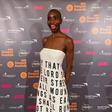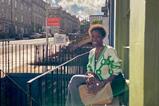Tola-Doll Fisher spoke to prophet and art curator Oyindamola Fakeye about her lifelong passions, which have led her to meeting our new king
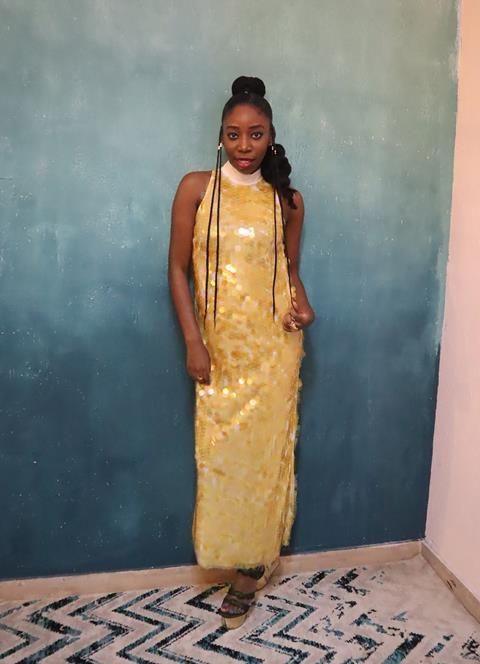
The night before this interview, Oyinda’s apartment was flooded. She returned home at around 3am to find water pouring down the walls and ankle deep in almost every room. This unfortunate event feels even worse when you know that Oyinda had been out all night praying for Nigeria with people in her fellowship group.
When I ask how she remained so calm about it, she says: “This is how I know we’re doing something worthwhile. You don’t get attacked from the enemy if you’re not working for God.”
Her reply is characteristic of many believing Africans I meet. God and faith are so ingrained in everyday life and conversation and events – good or bad – seen through the same lens. Oyinda (as she likes to be known), is British-Nigerian and grew up in the UK.
She says she always knew God and remarks: “I grew up going to an Anglican church in London’s suburbs and the people were just so loving and kind. Looking back, we were the only black family there but I was never really conscious of that as a child. We were just totally embraced and I had a strong sense that this was God’s love expressed through his people.”
Her faith journey has led her from this all-embracing, childlike faith to beginning to operate in the prophetic, first at a conference held at Jesus House Church where she was volunteering and then at a conference she attended in Italy.
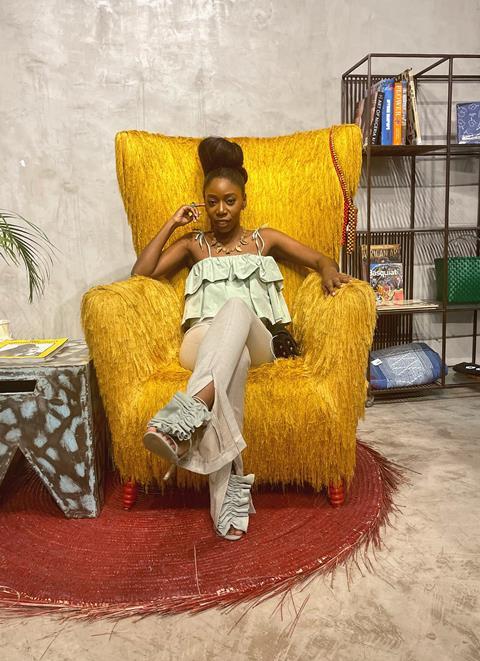 ©Oyindamola Fakeye
©Oyindamola Fakeye
A love of learning
Today, Oyinda describes herself as a prophet, an art curator and a fashion enthusiast, and her career history is a fantastic mix of roles and opportunities that have seen God’s hand throughout the journey. “When I was younger I wanted to be a physiotherapist but I didn’t get the A-Level grades I needed.
I was never an A-student at school”, she explains: “I was more a B, C student. But I was always really interested in learning, just not in a classroom setting.”
This is surprising when you hear just how many courses Oyinda has taken in her career, often studying by choice, long after full-time education. “Well, I have a real pioneer spirit so I took on every opportunity I could to discover more about whatever situation I found myself in.
After school I went to study nutritional biochemistry at the University of Nottingham, which wasn’t my first choice but I’m proof that God uses failure because I met some of my closest friends there and it was a real turning point for me in terms of my life and career.”
Following a personal interest in fashion, Oyinda took a short City & Guilds course in fashion at a local college. A tutor at her university had told her students that ‘health promotion’ was going to be the next big thing, so Oyinda then applied to Kings College to study that for her Masters in health and society.
During her time at Kings, there was an open call for women, people of colour and other unrepresented groups in the art world to go on a short course focused on curation and arts administration. She recalls: “I had always had an appreciation for aesthetics and had dabbled in fashion styling in my early 20s, but this was the first time I really got into art and it was this whole new world that felt really exciting.”
Oyinda followed this passion by getting a part-time job at the Saison Poetry Library at the Southbank Centre and taking an internship at the London International Festival of Theatre (LIFT).
Over the next few years she moved to Nigeria and started working with the then start-up, Centre for Contemporary Art (CCA) Lagos, founded in 2010 by the late curator, critic and Oyinda’s mentor, Bisi Silva. Now, just over a decade later and having started a mental health organisation (Sound Mind Africa) and collaborated with friends to start a retail company (Mei Dei), launch a productivity app (Lifeli) and found the Video Art Network (VAN) in Lagos alongside many other roles in the fashion, health, tech and arts industries, Oyinda has returned as artistic and executive director. She now oversees local and international exhibitions, runs their roving art school, which moves across African cities for each edition, and oversees their publishing arm.
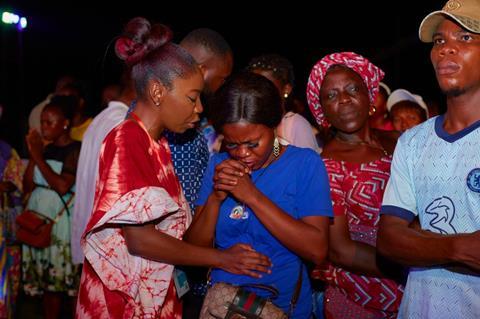 RIG Africa crusade Benin
RIG Africa crusade Benin
Navigating the challenges
Her less than linear journey sounds exciting but Oyinda is quick to shut down any presumptions that she has had a smooth ride. “My mum died when I was nine, and I basically had to bring my sister up while my dad was working back in Nigeria. I had a bit of breakdown when I was in my early 20s and quit my Masters, something I still regret almost 20 years later, but I just felt under all this pressure.
Then we expanded too quickly with Mei Dei and had to shut one shop and the other was taken over by new management. It definitely wasn’t easy! I have an internal personal drive to succeed and so I kept moving forward and doing new things, but when I made the move to Nigeria I never thought about consulting God about my plan. I definitely knew and loved God but I don’t think I understood that you could do that back then.”
In 2014, Oyinda was working on Sound Mind Africa, an organisation she co-founded after discovering Robin Williams died by suicide. “It was so sad and I just thought: ‘Why don’t people have more access to help?’ So I decided I would do meditation days and mindfulness workshops.
I also started working more in the productivity and wellbeing space, co-founding a company (Liferithms) and pursuing that full-time. It was going really well and we were planning the next few months when I felt God say really strongly that I should stop and go back into the art world.
I was really taken aback as it didn’t make sense but I went to my partner and literally said: ‘Look, God told me I need to stop this.’”
I ask if explaining this to her partner was made slightly easier by living in a country where the name of God is so widely used: “No! I mean, we had just finished forward planning; it didn’t make sense.
But this is how God works, because the next two art roles kind of came to me and I made something like 80 per cent more in those jobs than I had in the year previously, which allowed me to show up at an important time financially for my family.”
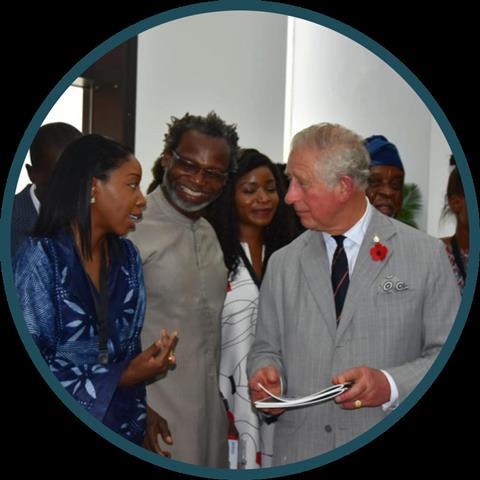 Oyinda meeting Prince Charles
Oyinda meeting Prince Charles
Interacting with world leaders
Going back into the art world is how Oyinda has met many high-profile leaders, including the UK’s new monarch, King Charles III. Oyinda recalls: “This was around 2018 and I, along with other entrepreneurs in the world of fashion, music and art, was invited by British Council [who she went on to work for a year later] to attend an event taking place as part of the then prince’s royal tour of Nigeria.
“He was really charming as you’d expect, and clearly someone who had been brought up to be king. And that day, I really felt that he was going to be. At the time I was working on a graduate arts programme for Rand Merchant Bank Nigeria and working with young artists.
He mentioned that he considered himself an artist and that he painted, not professionally, but for himself. I thought: ‘Well if he’s interested in arts then let’s talk about it!’ He was great – really funny and with perfect comedic timing.”
I observe that she looks pretty comfortable in the picture of the two of them talking, and ask if she felt shy at all. With no sense of hubris, Oyinda replies: “No, not really. I also met and spoke with President Macron at a luncheon event in 2019.
They were planning a cultural season in France for 2020 where they were celebrating art in Africa and he was doing a tour.” She laughs: “I wasn’t supposed to be there but as he was leaving a talk he had just given I followed him and then his security closed in around us so no one else could come after us!
“In the Bible, the prophetic finds itself very near to kings and leadership. So I leaned into that and have sensed that God wants me to be in rooms where culture is being discussed. So, both times, it felt very natural.”
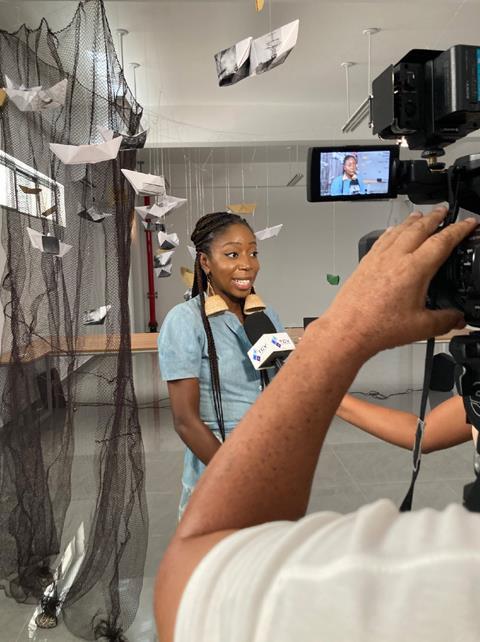 ©Courtesy of CCA, Lagos
©Courtesy of CCA, Lagos
Commending the new king
Oyinda says: “I know some people are critical of the royal family because of colonialism and yes, they have a colonial history and colonialism is one of the worst parts of England’s history. But there was a royal family before colonialism and there continues to be after.
“I grew up with a single dad, so, while I know a lot of people still see Charles in view of what happened with Diana, I have never seen him in a negative light because I figured he had to do the same thing as my dad. I’m praying King Charles will do a good job, and I believe he wants to.”
Oyindamola Fakeye is the artistic and executive director for CCA, Lagos and on the board of several other organisations in arts, tech and health including Arts in Medicine Fellowship and Res Artis.
Follow her on @uptown_boho
